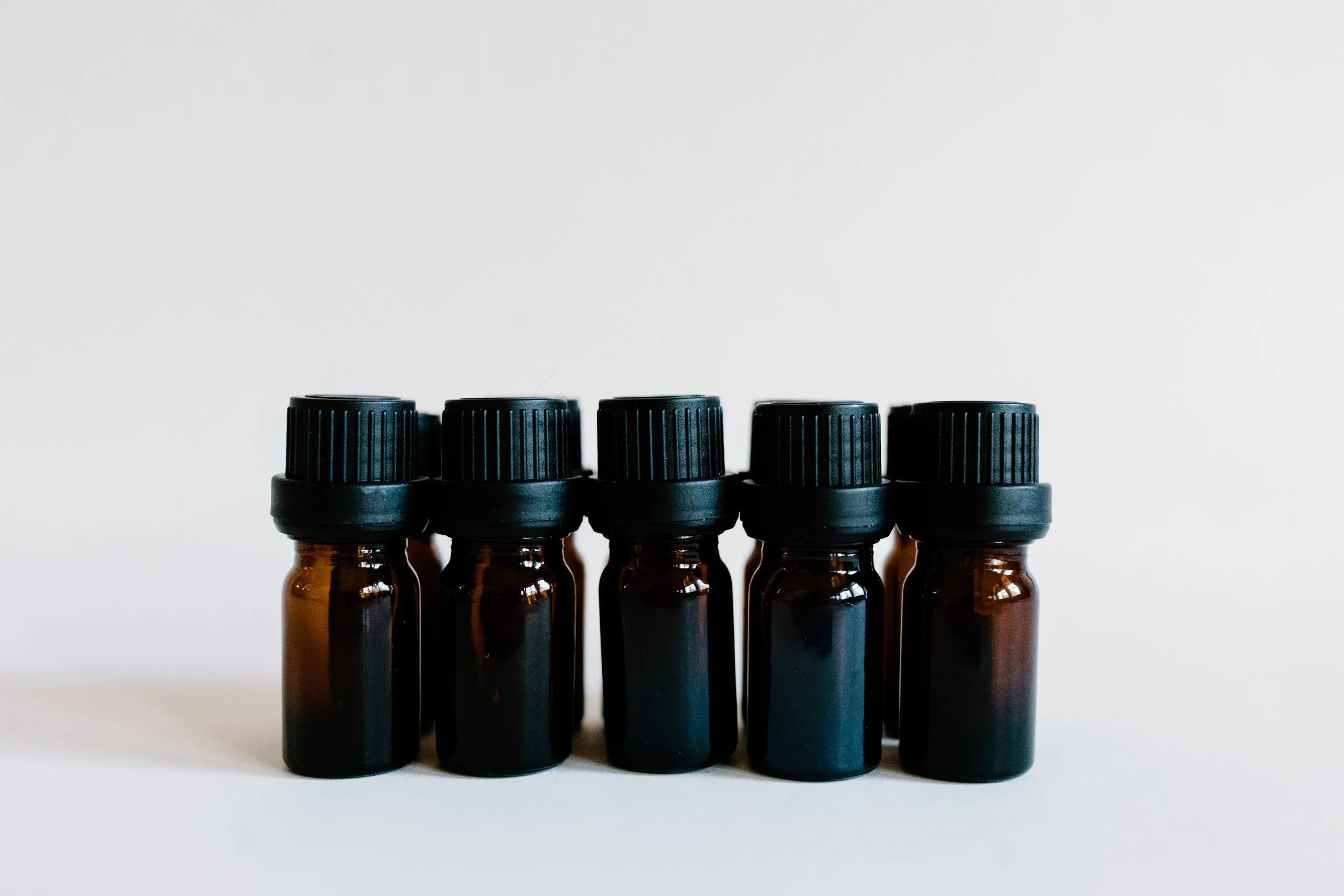Alternative medicine has seen an explosive increase over the past few decades. Including practices such as massages, acupuncture, and tai chi, this global trend encompasses a wide range of medical practices and systems from cultures all around the world. One aspect of this, which has grown in popularity, is the widely used essential oils.
Functioning as a holistic integrative modality to traditional medicinal treatments, essential oils can be quite beneficial. Integrative medicine specialist Yudang Lin, M.D., says:
“Essential oils are fantastic. They have many benefits. The problem lies in how people use them.”
What are Essential Oils?
Essential oils are concentrated liquid extracts of various plants, containing high concentrations of these plant phytochemicals and structural material. This higher concentration equates to having a much stronger smell than the plants they come from and containing a higher level of active ingredients. The concentration is so high that to produce a single 15 ml of rose essential oil, it takes 65 pounds of rose petals.
According to Dr. Lin, “Because it takes so much of the plant to make an essential oil, it’s a powerful botanical medicine.” The extracted therapeutic oils protect the plants from insects, protect them from a harsh environment, and help them adapt to their surroundings. By using essential oils, you are able to harness the protective and beneficial powers of these plants.
Extraction Methods
There are different methods that manufacturers utilize to extract their essential oils, including:
- Cold pressing: This process works by mechanically pressing or squeezing plant matter, leading to the release of essential juices or oils.
- Steam / Water distillation: This process passes water or hot steam through the plants, which pulls the essential compounds away from the plant matter.
The result of these methods is pure essential oil. While some manufacturers may add a carrier oil to gain more product from the same amount of essential oil, many opt to keep these oils in their purest, most potent form.
How Do They Work?
Breathing
Michelle Davila, N.D., a naturopathic doctor with the Integrative Medicine Department of Beaumont Health in Michigan says “One way they work is through our sense of smell.” When you inhale an essential oil, the scent molecules are sent directly to the brain from the olfactory nerves. Once in the brain, these molecules interact with the limbic system, playing a role in emotions, memories, and sensations. This can happen by sniffing the oil or placing it into a Reed diffuser for a continuous release of its goodness.
Topical Application
The scent molecules are also able to be absorbed into the bloodstream when applied to your skin. Davila explained that once they enter the bloodstream, these essential oils are distributed throughout the body to potentially enhance overall health. However, due to the high concentration, the oil must be diluted before being applied.
It is important that we note that although essential oils are potentially beneficial for various aspects of our health, they don’t all work in the same way. According to Elizabeth Ko, M.D., medical director of the UCLA Health Integrative Medicine Collaborative, “Each plant’s essence has a different chemical makeup that affects its smell, absorption, and effect.”
This is why knowledge is so important. So today, we will look at a few of the most popular ones, their benefits, and how to implement them into your routine.
List of Top Essential Oils
1. Lavender
This is one of the most popular essential oils, known for its sweet scent and wide range of health benefits.
- Treating acne and irritated skin: Due to being antimicrobial, antibacterial, and anti-inflammatory, Lavender has been shown to have healing properties when applied to the skin. It can be used to treat a number of skin problems, including eczema, psoriasis, and some other allergies. In fact, research has actually proved it to be an effective treatment for acne flare-ups and for preventing blemishes.
-
- How To Use It: Dilute 9 drops of lavender essential oil in one tablespoon of carrier oil (such as jojoba, or almond oil). Alternatively, you can add it to unscented face cream.
- Aiding mood, stress, and anxiety: A study has found that lavender oil acts similarly to prescription anxiety medication. With a soothing and calming effect on mood, stress, and anxiety, it can also play a role in the treatment of postpartum depression and PTSD symptoms.
- How To Use It: Diffuse 3-5 drops of lavender essential oil per cup of water, for 15-20 minutes. Take deep sniffs into each nostril straight out of the bottle for immediate relief, or add it to your bathtub.
- Stimulating hair growth: Preliminary research has found that this essential oil doesn’t just stimulate hair growth, but can also increase hair health and thickness when used daily.
- How To Use It: Mix equal parts of the essential oil and a carrier oil (such as coconut oil, or olive oil), massage it into the scalp, and wait 10 minutes. Alternatively, leave it overnight for a deep conditioning treatment.
2. Tea Tree Oil
Like lavender, tea tree oil is known for its antiseptic, antimicrobial, and antifungal qualities. Due to its high concentration of terpinen-4-ol, this essential oil has anti-inflammatory properties which can protect your overall health. The benefits include:
- Treating Acne: According to New-York based dermatologist Marisa Garshick, M.D., “it helps with acne because the oil has been found to have antimicrobial effects against Culibacterium Acne, a type of bacteria that is… involved in the formation of acne.” However, Deanne Robinson, M.D. says “If you are sensitive to eczema-prone skin, you should avoid tea tree oil as it can cause irritation.” The result? Dealing with breakouts and a rash at the same time.
- How To Use It: Similar to lavender, tea tree oil needs to be diluted in a “carrier oil” of your choice. Applying this oil in its high potency form on your face can cause more acne and redness.

Photo by Kelly Sikkema on Unsplash
- Treating Athlete’s Foot and Ringworms: This is a common, contagious, fungus infection that affects the foot. The fungus that causes it needs keratin to grow, and a warm, moist environment to breed. This commonly occurs in people whose feet become very sweaty while wearing tight-fitting shoes.
- How To Use It: Once again, this oil needs to be diluted in a carrier oil, and massage on the affected area.
3. Eucalyptus Oil
This is an incredible essential oil, especially during cold seasons. The active ingredients in this oil contribute to its reputation as a cleansing, purifying, and immune-boosting oil that can be used as aromatherapy and on the skin. The benefits include:
- Congestion: Eucalyptus oil has the ability to relieve congestion by loosening phlegm. According to an ENT specialist, Dr. Abhijeet Mantri from Apollo Spectra, Mumbai, “Eucalyptus oil has a soothing effect on the respiratory tract. It also helps in liquefying the mucus that blocks your nasal passage and chest.”
- How To Use It: With inhalation, put about 12 drops of eucalyptus oil in 150 ml of boiling water, and cover the container and your face with a towel. Repeat this three times a day when needed. With topical application, some evidence suggests that the dilution method may be convenient when the congestion is intense. To do this, dilute 1-5 drops of the oil with a carrier oil. Proceed then to apply this mixture to your chest or throat.
- Cleaning cuts and scrapes: Eucalyptus has antimicrobial properties. This not only ensures that infection is prevented but also supports wound healing. It has also been shown to enhance and speed up the skin’s healing process and provide soothing properties that can help calm inflamed skin.
- How To Use It: Eucalyptus must be diluted with olive oil to serve this purpose.
4. Citronella
Citronella is made from distilling the Asian grass plant. This fragrant grass gets its name from the French word which means “lemon balm”, due to its floral, citrus aroma. This concentrated form of antioxidants and phytochemicals is taken from the plant’s stems and leaves, Citronella oil has been used for centuries to not only help decrease rashes but to also reduce inflammation and pain. The benefits include:
- Mosquito repellent: Due to its powerful citrus aroma, it is a potent ingredient in mosquito repellents. This aroma masks the scent of carbon dioxide and lactic acid which mosquitos are chasing after and forces them to look elsewhere. Basically, while it doesn’t kill them, it manages to keep them away.
- How To Use It: Dilute citronella in a carrier oil that you can use to moisturize your whole body. Alternatively, you can diffuse it, so you don’t have to apply it topically.
- Pain and Inflammation Relief: Citronella has powerful anti-inflammatory, analgesic, and pain-relieving properties. Studies show that the oil can be used to provide relief from pain and inflammation. Acting as a natural vasodilator, and providing a warming effect, it can be used to treat painful cramps, muscle spasms, and sore muscles.
- How To Use It: Add 2-3 drops of citronella oil to any carrier oil and massage it directly onto the painful joints to get relief.
How Safe Are They?
With all the listed benefits, it’s understandable that you’d want to add a few essential oils to your cart. However, it is very easy to link “natural” to “safe”, and this isn’t always the case. While essential oils are plant-derived, this concept applies to them too. Essential oils can have adverse effects, with speculated ones including:
Affecting the endocrine system
The endocrine system consists of glands that are responsible for hormone production. This ensures regulation of your metabolism, mood, growth, and sleep patterns. Dr. Romy Block, a board-certified endocrinologist, says essential oils can act as endocrine disruptors. This means that they interfere with the natural production of your hormones. This can cause “disruption of development, reproductive changes or even interfere with the immune system.” However, there isn’t enough evidence to warrant this as factual.
Allergies
It’s quite easy to spot an allergic reaction as a result of essential oils. Symptoms typically include itchy and watery eyes, a runny nose, sneezing, and congestion. Studies have found topical applications can lead to dermatologic allergy symptoms, including hives, skin swelling, and itchiness.
Dr. Sanjeev Jain, a board-certified allergist and immunologist at Colombia Allergy, says that while allergy symptoms depend on the route of administration (inhalation versus topical application), it’s not uncommon for people to experience both at the same time.
Should You Stay Away From Essential Oils?
It’s hard to determine how an essential oil will affect you on your own. This is why you need to consult your doctor before implementing any new modalities. For example, physicians don’t advise having essential oils around young kids. Also, if you’re pregnant, you should be avoiding essential oils including juniper berries, rosemary, sage, hyssop, and thyme. Our bodies are all wired differently and will react to new lifestyle implementations differently.
References
Werrie, P.Y., Durenne, B., Delaplace, P. and Fauconnier, M.L., 2020. Phytotoxicity of essential oils: Opportunities and constraints for the development of biopesticides. A review. Foods, 9(9), p.1291.
Lin, L.Y., Chuang, C.H., Chen, H.C. and Yang, K.M., 2019. Lime (Citrus aurantifolia (Christm.) Swingle) essential oils: Volatile compounds, antioxidant capacity, and hypolipidemic effect. Foods, 8(9), p.398.





![women [longevity live]](https://longevitylive.com/wp-content/uploads/2020/01/photo-of-women-walking-down-the-street-1116984-100x100.jpg)









